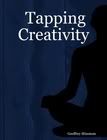I’ve always been one to view social media sites with a certain amount of reserve. After all, I’m 32. Myspace sort of feels like someone else’s space, if you know what I mean. Digg has a bit of an elitist attitude. I like Reddit, even though the interface could be more intuitive. And del.icio.us is better as a utility than as a social scene.
StumbleUpon, on the other hand. Well, now we’re talkin’!
Right before Facebook became the social network du jour a month ago, StumbleUpon was getting mad press! Most of it was from bloggers writing posts on how they got about 7 bazillion visits from StumbleUpon within mere minutes of “stumbling” their own post. So, of course, I had to get in on that action. Well, my traffic has gone up a little bit, (10-15 visit a day) since I became active at StumbleUpon. What I got in return, however, has been far more valuable than traffic.
I’ve found StumbleUpon to be a tremendous resource as a writer. Most often, this comes in the form of inspiration and information. Please indulge me and my blatant overuse of italicized text.
StumbleUpon for Inspiration :: The Pictures
One of the most unique features of StumbleUpon is the ability for users to photoblog. Many users focus almost solely on seeking out magnificent and awe-inspiring pictures. If you’ve followed Tapping Creativity for a little while now, you’ll know I’m a big fan of Writing to a Snapshot. Some stumblers have made it an artform, however.
When you are stuck for an idea, check out two of my favorite photostumblers: TeapotFox and Fantm. Their choice is images is, without a doubt, enough to generate something creative. If not, you need to check your pulse. Pick an image from either of their blogs and use it to get started. Some stumblers also write poetry to the images they stumble. And most of it is very good. In some cases, the seeds to a much bigger story have been sewn. All you have to do is start watering it.
StumbleUpon for Inspiration :: The People
More than any blog or tagging system alone can do, StumbleUpon allows you to get a pretty good idea about a person, quickly. This helps not only in finding other cool people, but also in learning how to flesh out characters in your own writing.
For instance, Caile-girl is, what I would consider, an ideal stumbler from whom to learn. Her stumbles shine on their own. They also, however, show the range of a real (and interesting) person who shows lots of moods and sarcasm. And Perko shows a range in his stumbles that encompass a wide variety of interests from the arts and sciences, but show a common thread throughout. Checking out his stumbles is like reading a Don DeLillo book. And I love me some Don DeLillo.
StumbleUpon for Information
You will find experts in every conceivable field on StumbleUpon. I have a special affinity for some subjects, such as social media optimization. Do you? If so, check out Msaleem-stumbl. His stumbles are a veritable encyclopedia on the subject. Looking for a slew of information on socio-political current events? Try Poeticsweetnss. Her stumbles are like the best newspaper you’ll find – provided you lean a little to the left. Of course, you can always find me there, too. I post a lot of stuff about writing (surprise) and music.
Do any of you use social media to find inspiration for your creative inspiration? If so, by all means, drop a comment to share.













